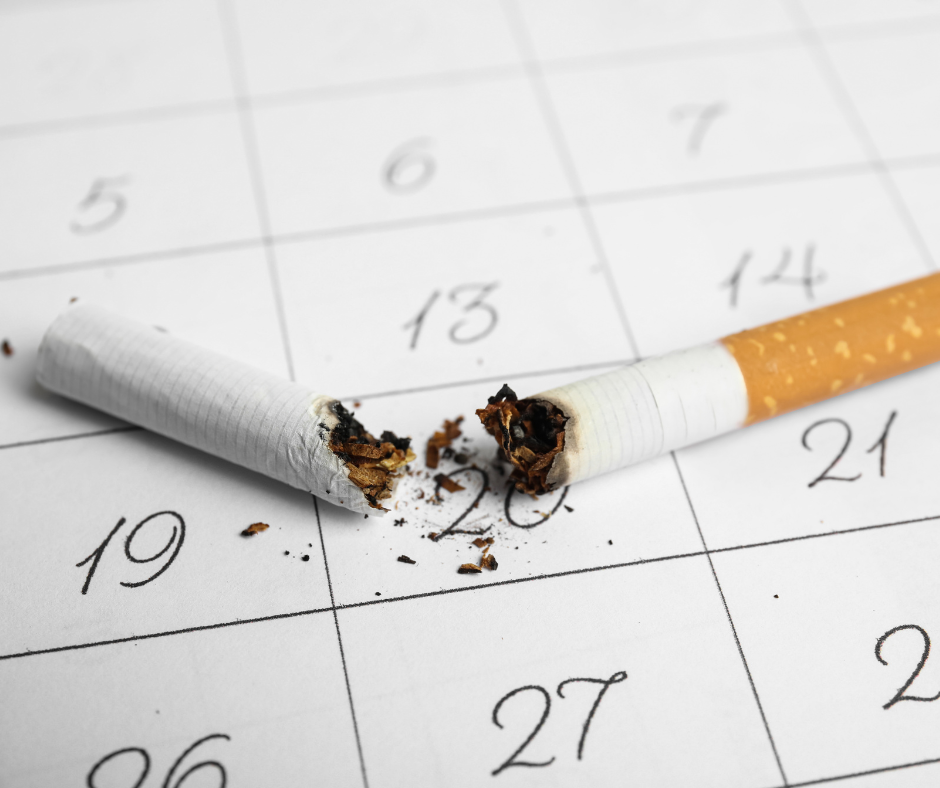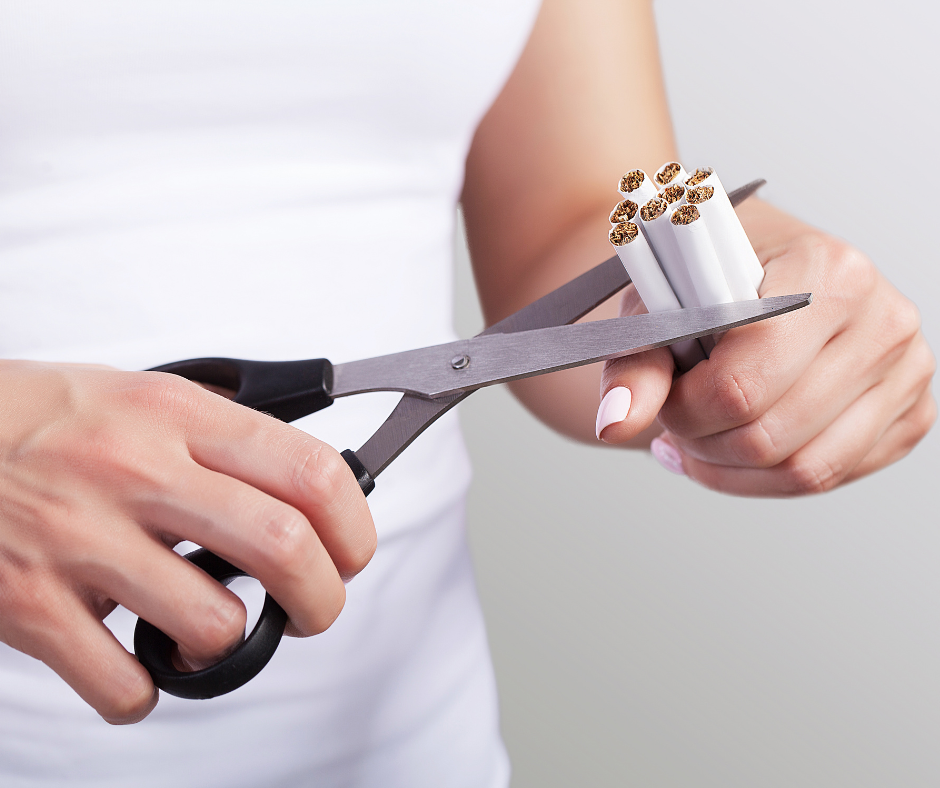Seven tips to help you quit
By stopping smoking now, you can stop your lungs from getting more damaged. You can reduce your chances of developing cancer, lung disease and heart disease. Even if you've already been diagnosed with lung disease, quitting will help improve your health and quality of life.
Here are seven things that can help you on your quit journey.

1. Prepare yourself to quit
Before you set your Quit Date, you need to prepare.
Take time to think about when, where, and why you smoke. If you understand your smoking habits and triggers, you'll have a better chance at success.
You can learn more about a smoke-free life at www.smokefreecurious.ca.
Advice from a smoking cessation counsellor

2. Pick a quit day
Choose a date within the next two to three weeks to quit. Make sure you pick a date that will work for you, but don't wait for the perfect day — just pick a day and work with it. Add it to your calendar.
Avoid days when you'll be celebrating a special occasion with built-in smoking triggers, such as birthdays, anniversaries or holidays.
If you're a woman who gets pre-menstrual syndrome (PMS) before your period, avoid a quit date that coincides with that.

3. Choose supports
Going “cold turkey” isn't your only option. There are many proven ways to help you quit. Choose one or a few that work for you.
- Support groups.
- Individual counseling in person or by phone
- Nicotine replacement therapy or NRT (nicotine patches, gum, lozenges, inhalers)
- Prescription medications
- Support from family and friends
- If you think it cold turkey could work for you, try it!

4. Get a quit buddy
A quit buddy is someone you can depend on when you're craving a smoke, feeling down or just need to vent.
Your quit buddy can be anyone: a family member, friend or co-worker. The person doesn't have to be an ex-smoker, since all that really matters is that they will be there for you to provide regular and non-judgmental support.

5. On your quit day
- Butt out completely. Don’t smoke, not even a little.
- Toss out your cigarettes, other tobacco and ashtrays.
- Avoid people and situations where you will be tempted to smoke. Change your usual routine to one that doesn’t include smoking.
- Go for a walk instead of a smoke.
- Be positive. Believe in yourself and your plan.
- Remember that nicotine withdrawal symptoms only last a short time. Follow these tips to cope with withdrawal symptoms.
- Get help from support groups, counselors and your local quit line.

6. Dealing with cravings
Nicotine is highly addictive. Your body and your brain will crave nicotine. Nicotine withdrawal symptoms are uncomfortable, but they don't last forever; there are ways to cope. Talk with your doctor or nurse practitioner about nicotine replacement therapies and quit smoking medication.
You can also try using the 4 Ds:
Delay for a few minutes and the urge to smoke will pass.
Drink water sipping it slowly.
Deep breathing using slow, deep breaths.
Do something different to take your mind off smoking.

7. Celebrate your successes
Take it one day at a time. If you slip up, don't give up. Once the withdrawal is over, you’ll feel better than you have in years!
And don't forget to celebrate your success and give yourself credit. Tell people how long you’ve quit for. It's a major achievement and you should be proud!
